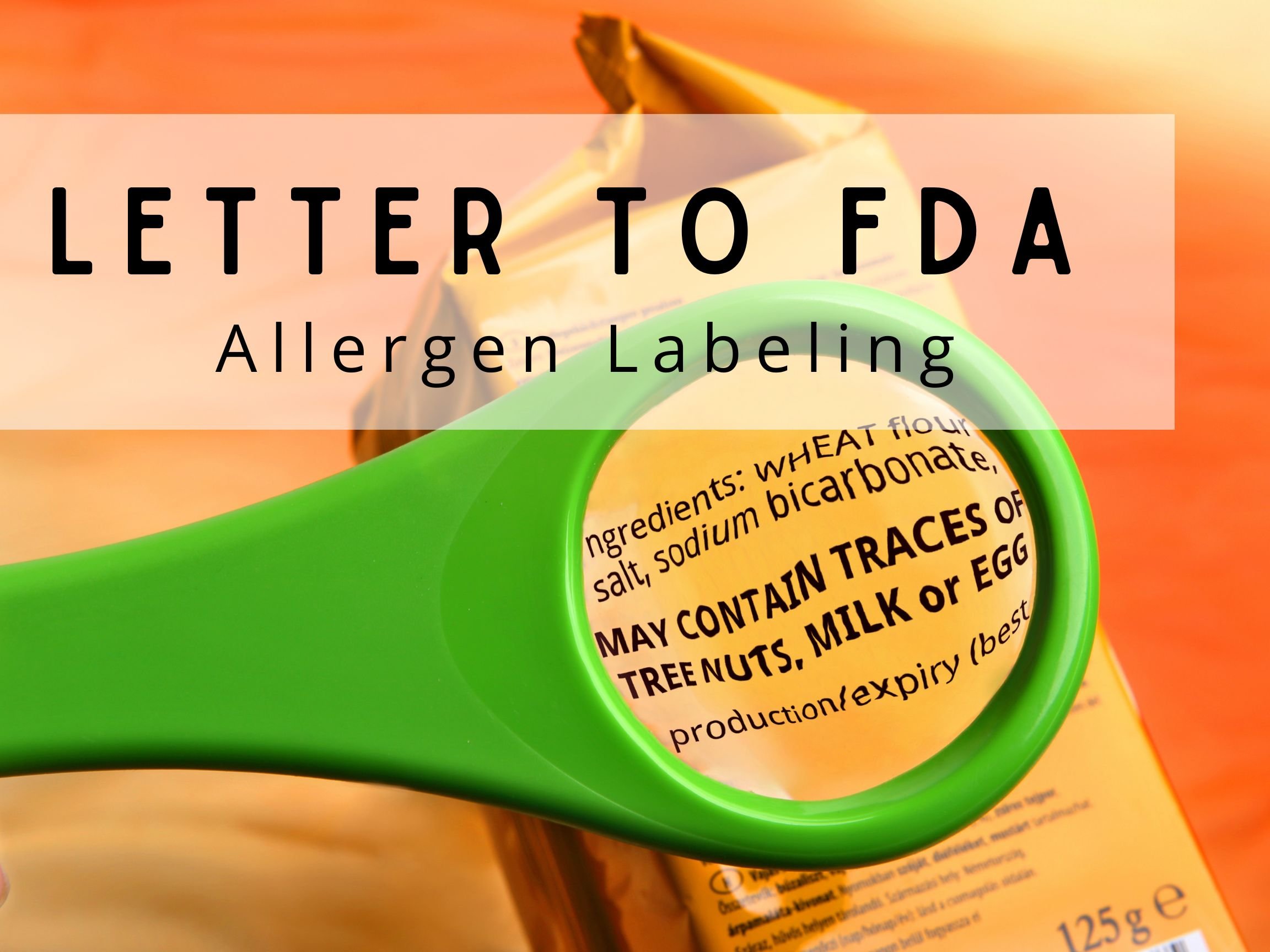
Food Is Medicine Advocacy
Within our Food is Medicine Access - Advocacy program, FEI works with nonprofit allies, governmental programs, healthcare providers, the food industry, and our program participants to research and identify needs in the community and gaps in coverage and representation. We take these concerns to the next level by advocating for legislative and institutional change. Our goal is to best serve traditionally under-represented populations in healthcare, particularly along the lines of race and income.
Policy Priorities
Establish best practices for the charitable food system to identify, sort, store, and distribute foods for medically-required diets.
Establish nutrition policies that reflect the needs of individuals with medically-required diets in school and community settings.
Push for legislation that provides insurance coverage of medicinal foods required for a diet-related condition.
Research Initiatives
Pilot Studies
Alongside respected educational institutions, we pilot research projects that study the impact of food access and nutritional education intervention for people with food allergies experiencing food insecurity. Our early findings suggest that, after completing the program, parents/caregivers were more likely to report that they were educated in how to read and interpret labels when food shopping, how to prepare allergy-safe foods, and how to manage their child’s food allergy.
This shows that our educational program is worthwhile and plays a significant role in improving the health of our community. We are excited to continue this research.
Research Partner Institutions:
Center for Food Allergy & Asthma Research at Northwestern
Stanford University
University of Kansas Hospital
Texas Children’s Hospital/Baylor University
Academic & Scientific Publications
2023
American College of Allergy, Asthma, and Immunology: Racial Disparities in Atopic Dermatitis and Food Allergy: Physician and Advocacy Experts Describe Pervasive Problems and Identify a Top 10 Solutions Agenda, in collaboration with Allen, A., Begolka, W., Blaiss, M., Bobo, N., Brown, E., Corbett, M., Foggs, M., Fonacier, L., Gupta, R., Kowalsky, R., Martinez, E., Zachary, C. (January 11, 2023).
2022
American Academy of Allergy, Asthma, and Immunology Conference: Characteristics of Patients with Food Allergy & Food Insecurity on Prescription Supplemental Nutrition Program, in collaboration with Murray, A., Martinez, E., Brown, E., Love, M. (February 27, 2022).
Annals of Allergy, Asthma & Immunology: Proposed solutions by the American College of Allergy, Asthma, and Immunology and advocacy experts to address racial disparities in atopic dermatitis and food allergy, in collaboration with Allen, A., Begolka, W., Blaiss, M., Bobo, N., Corbett, M., Foggs, M., Fonacier, L., Gupta, R., Kowalsky, R., Martinez, E., Zachary, C. (December 17, 2022).
2021
The Journal of Allergy and Clinical Immunology: Addressing food insecurities in clients with food allergies in underserved communities with a prescription food program, in collaboration with Kansas University Medical Center (2021).
Social Work in Health Care Journal: Addressing the social needs of individuals with food allergy and celiac disease during COVID-19: A new practice model for sustained social care, in collaboration with Northwestern Center for Food Allergy and Asthma Research in Chicago (2021).
North American Society for Pediatric Gastroenterology, Hepatology, and Nutrition: Addressing food insecurity in pediatric celiac patients through a prescription food pantry, in collaboration with Children’s Mercy Hospital in Kansas City (2021).
American Academy of Allergy, Asthma, and Immunology’s Virtual Conference: Addressing Food Insecurities in Clients with Food Allergies in Underserved Communities with a Prescription Food Program, Seng, A., D’Mello, A., Martinez, E., Brown, E., Love, M., (February 26, 2021).
The Journal of Allergy and Clinical Immunology: Addressing Food Insecurity and Improving Food Allergy Management among Pediatric Patient/Caregiver Dyads During the COVID Pandemic, Warren, C., Chinthrajah, S., Martinez, E., Casareno, L., Rodriguez, A., Brown, E., Hampton, Q., Martinez, K., Kost, L (2021).
NASPGHAN Virtual Conference: Addressing food insecurity in pediatric celiac patients through a prescription food pantry, Bracken, J., Martinez, E., Brown, E., Kaufman, K., Brewer, S., Bird, L., Ryan, J. (December 2021).
2020
The Journal of Allergy and Clinical Immunology: In Practice. Food Insecure and Allergic: A Vulnerable Population, in collaboration with Northwestern Center for Food Allergy and Asthma Research in Chicago (2020).
2017
Current Allergy and Asthma Reports: Patient-centered outcomes in food allergy, in collaboration with Polk, B.I., Dinaker, C. (2017). Led by Emily Brown, Food Equality Initiative, Inc. spearheaded efforts to create an in-depth cost analysis of allergen-friendly foods, comparing theiost to non-allergen friendly foods.
2016
National WIC Association’s Annual Conference: Food Allergies and Food Insecurity. Challenges and Solutions from a WIC Client, Brown, E, Lisso, K. (May 23, 2016).
Make a difference in the lives of people with diet-related chronic diseases and conditions
Get Involved
To get involved with FEI’s advocacy work, check out our different opportunities below.
Volunteering
If you would like to volunteer with FEI, send us an email with your interests and skills and we will work with you to find a good match of projects to help further the mission. We’re always excited to have more people on board!
Board
Board of Directors
Food Equality Initiative’s Board of Directors (BOD) is composed of advocates from all sorts of professional and personal backgrounds. Board members are our allies in the community, sharing about FEI and bringing awareness to the challenges at the intersection of food insecurity and the requirement of food as medicine. The BOD currently meets monthly.

















